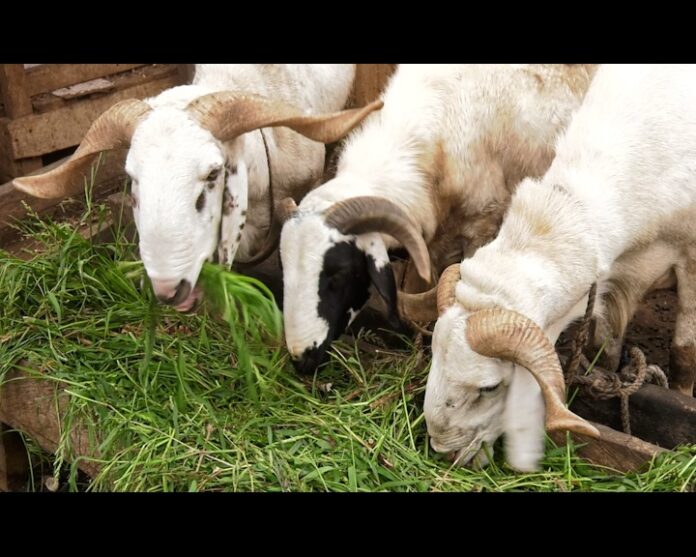The continuous hike in prices of general goods appear to be impacting on livestock required for the Eid-ul-adha celebrations.
Eid-ul-adha celebrants who visited the Tulaku market were astonished about the astronomical price increases of livestock.

Generally, prices of goods have seen astronomical increase over the last few months.
The global marking of the Eid-ul-adha celebration by Muslims has further caused prices of key commodities to soar.
Livestock play a crucial role in the celebration, but prices of rams and cattle have more than doubled now.

The Tulaku livestock market is arguably the biggest livestock selling point in the Kpone Katamanso district of the Greater Accra Region.
Muslims from far and near thronged the market to shop for the celebration but were taken aback by the price increases of the livestock.

Ayisha, a regular patron at the market has come to buy a cow for fourteen thousand cedis but last year, she bought similar animal for six thousand five hundred cedis.
She was concerned that the prevailing cost of livestock on the market will be a barrier to many who do not have the financial muscle to afford.
Rams which cost less than five thousand cedis last year have their prices appreciating by more than one hundred percent.

Sule Amando who has been selling livestock for more than two decades at Tulaku justifies the price increase.
He told Stanley Nii Blewu of 3news.com that, “the reason livestock prices have shot up is that whenever the cedi depreciates against the CFA we also adjust our price to correspond with the forex rate.”

The prices of cattle here range between six thousand and seventy thousand cedis.
Sule who targets affluent customers said patronage has been low this year.
“Four, five years ago, patronage of livestock was encouraging the same cannot be said this year. Market has really been slow”, he said
For Mohammed Osman and his brother Ahmed, factors including the continuous depreciation of the cedi to other trading currencies coupled with the high cost of feed determine prices for their livestock.
Mohammed said, “the feed for the cattle has been our major challenge. We spend money on their feed and medicine which weighs down heavily on our finances. If one limits himself to the prevailing challenges, then he may consider livestock business as a bad venture.”

The abundance of livestock presents opportunity for feed sellers to cash in.
However, herdsmen who could not afford the feeds sold there take their herds out for grazing.
The prevailing high cost of livestock is expected to linger even after the Eid-ul-adha celebrations because the variables influencing the price hikes have not been tamed.
By Stanley Nii Blewu












